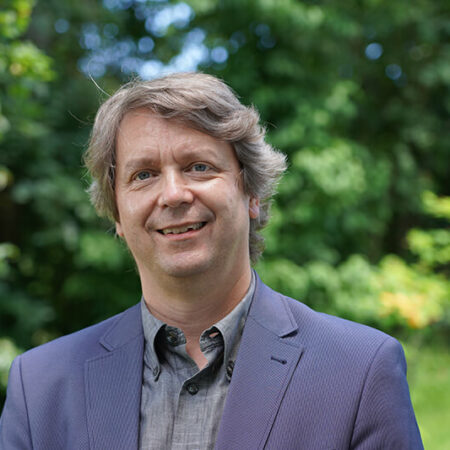Prof. Dr. Udo Weimar, together with Prof. Dr. Daniel Buhr are the Heads of the Steinbeis Transfer Center for Social and Technological Innovation. Udo Weimar also holds a professorship for Analytical Chemistry at the Institute of Physical and Theoretical Chemistry within the Department of Chemistry, which is anchored in the Faculty of Science at the Eberhard Karls University of Tübingen, Germany.
Udo Weimar received his doctorate in physical chemistry. In 2010 he was appointed full professor at the University of Tübingen, where he heads together with Dr. Nicolae Barsan a sensor group. Udo Weimar is a member of various steering committees and has more than 20 years of experience in the field of sensor technology, which he has brought to bear in European projects as coordinator of the thematic networks “NOSE” and “NOSE II” and the network of excellence “GOSPEL”. Udo Weimar has been active in the field of assistance technologies for more than 15 years and was, among other, the technical coordinator of the Integrated project on Ambient Assisted Living (AAL IP) “Netcarity” FP6 (supporting technologies for older people at home) and overall coordinator of the FP7 IP “Clear-up” (Resource-efficient and comfortable buildings) and one of the coordinators of “PleasureHome” (European-Korean project).
At the national level, there is an important anchor project with a 10-year term until at least 2023, the “LebensPhasenHaus” (LPH) project. Udo Weimar together with Daniel Buhr are also the coordinators of this long-term venture. The LPH is both an exhibition and a meeting place and the first of its kind in Baden-Württemberg. The research and demonstration object built by Schwörer Haus KG in cooperation with RIDI Leuchten GmbH, Somfy GmbH, Stadtwerke Tübingen GmbH and the Association of Garden and Landscape Designers Baden-Württemberg makes the use of technical assistance systems (Ambient Assisted Living) tangible offers space for research, courses, training and exchange.
A whole series of national and international projects have emerged from this anchor project, e.g. “TABLU” (funding: Federal Ministry of Education and Research, BMBF). The main goals were more independence, flexibility and security for informal caregivers by improving care skills through personal and technical assistance. The “NiviL” (non-visual effect of light) project, a study in two nursing homes on the circadian effect of daytime-controlled lighting, was also funded by the BMBF. With the support of the Baden-Württemberg Ministry of Economics, the “Hammer 4.0” project was successfully completed in 2018 in cooperation with a social enterprise, as well as the Chamber of Industry and Commerce and the Reutlingen Chamber of Crafts. The topic was to train the craftsmen so that (technical) support systems can be installed and operated systemically in the homes of those in need of care as required. Currently, projects for mobile geriatric rehabilitation are running with technological support (“VitAAL”, funded by the Baden-Württemberg Ministry of Social Affairs) and the use of exoskeletons in care such as “Expertise” (Federal Ministry of Labor and Social Affairs) and “Exohaptics” (BMBF).
